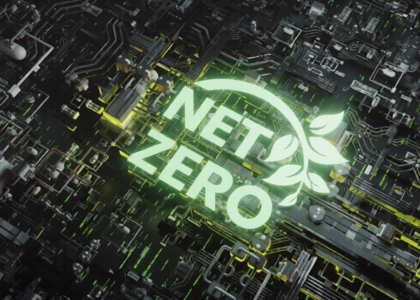In today’s fast-changing world, sustainability is no longer an elective — it’s an essential life skill. The next generation is stepping into an economy that demands more than technical knowledge; it requires green skills — the mindset, creativity, and capacity to build a future where people and the planet thrive together.
At SustainabilityUnscripted, we have spent years documenting stories of young innovators and community leaders transforming challenges into climate solutions. And through Cleancyclers, we have seen firsthand how practical environmental education can shape a circular economy in Africa and beyond.
But this movement needs to grow. If we truly want a sustainable world, then green skills must become the new global literacy.
The Future Belongs to the Green-Skilled
The future workforce will be shaped by sustainability — whether in energy, agriculture, manufacturing, or design. From solar engineers to waste recovery specialists, sustainable finance experts to eco-educators, every profession is evolving.
As Canon Otto often notes:
“Sustainability is not a job title — it’s a mindset. Every career, every classroom, and every community must align with the principles of regeneration.”
In Africa, this transformation holds even deeper meaning. With our abundant natural resources and youthful population, the continent has the opportunity to lead the world in green innovation. But that can only happen if our education systems and institutions intentionally equip the youth with green skills — not just for employment, but for empowerment.

Education: The First Step Toward a Sustainable Future
The classroom is the foundation of climate action. Yet, in too many schools, sustainability remains a side topic — discussed during Earth Week, then forgotten.
At Cleancyclers, we believe that sustainability should be embedded into every level of learning. From basic science to business strategy, students must understand the impact of their decisions on the environment. This is why we’re partnering with institutions to introduce circular economy and climate literacy programs that make sustainability practical, relatable, and results-driven.
Similarly, SustainabilityUnscripted continues to use storytelling as a powerful teaching tool — connecting the dots between global sustainability goals and local realities. By showcasing youth-led innovations and climate-conscious entrepreneurs, we’re proving that sustainability education can inspire tangible change.
Closing the Green Skills Gap
The global green transition is creating millions of new jobs — but many lack the skills to fill them. According to international sustainability reports, there is a critical green skills gap emerging across both developed and developing economies.
At the Global Sustainability Summit, our discussions have highlighted the need for cross-sector partnerships that train and retool workers for the new economy. Cleancyclers, in collaboration with SustainabilityUnscripted, is committed to bridging this gap through training, mentorship, and community engagement programs that prepare individuals for circular careers in waste management, renewable energy, and sustainable design.
As Canon Otto emphasizes:
“We cannot speak of a green economy without green people. Building sustainable infrastructure without sustainable mindsets is a contradiction.”

From Awareness to Action
Having the right knowledge is not enough — it must translate into daily practice. The heart of sustainability lies in habits, not headlines.
Every young person must understand that sustainability begins with small choices — reducing waste, choosing renewable options, supporting ethical products, and rethinking consumption. These are the daily actions that build a sustainable culture.
Through platforms like SustainabilityUnscripted, we continue to share these lived examples — proving that sustainability is not just a global conversation but a local responsibility. And through Cleancyclers, we’re demonstrating how communities can transform waste into wealth, and problems into purpose.
A Call to Educators, Governments, and Industries
The path to a green future is not paved by technology alone — it’s shaped by people who are prepared to use it responsibly. Governments must prioritize sustainability education as a national development goal. Institutions must reform curricula to include climate resilience, environmental innovation, and circular design.
Corporations and industries must also support upskilling programs that prepare workers for the demands of a low-carbon economy. Together, we can create a world where every profession — from agriculture to architecture — is aligned with the principles of sustainability.

Final Reflection: The Canon Otto Perspective
The sustainability movement is not about trends; it’s about transformation. The next generation will inherit both the challenges and the solutions of our time. Equipping them with green skills is not just a strategy — it’s a survival plan.
As Canon Otto, Founder of Cleancyclers and voice behind SustainabilityUnscripted, reflects:
“Green skills are the bridge between knowledge and action — between the world we have and the world we want.”
Our collective mission at Cleancyclers and SustainabilityUnscripted is to ensure that the leaders of tomorrow are not just environmentally aware, but environmentally prepared. Because the future of sustainability depends on those who can live it, lead it, and learn it.
🔗 Read more inspiring sustainability stories at SustainabilityUnscripted.com
🔗 Join the Cleancyclers Green Skills Initiative at Cleancyclers.com







